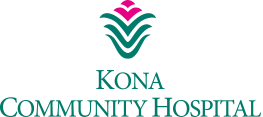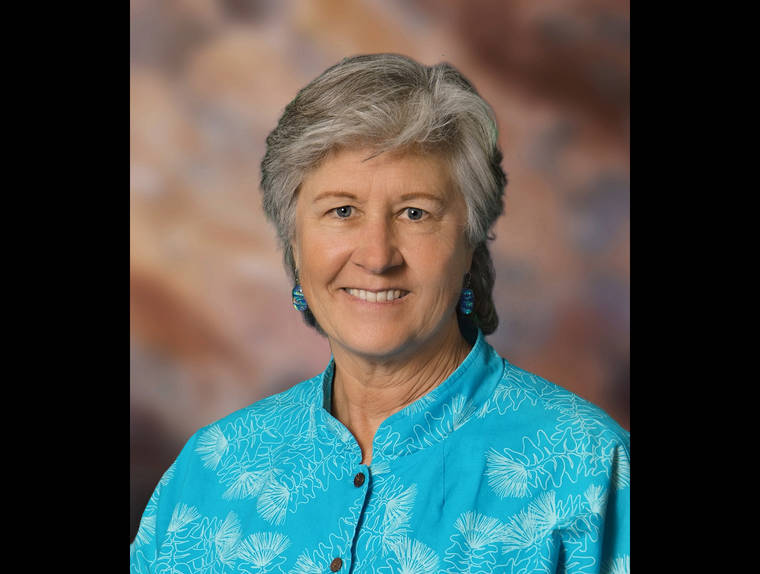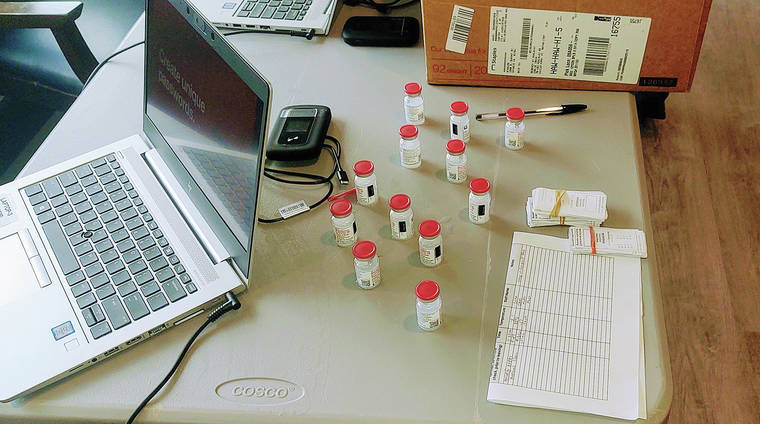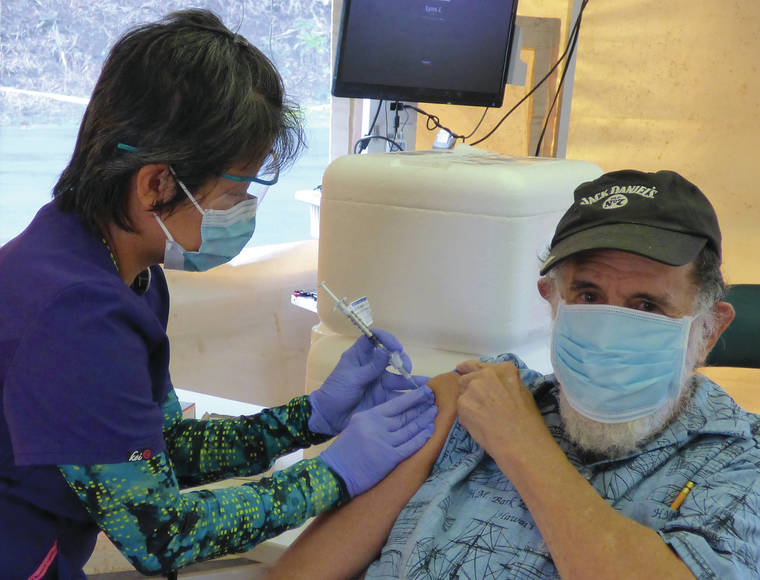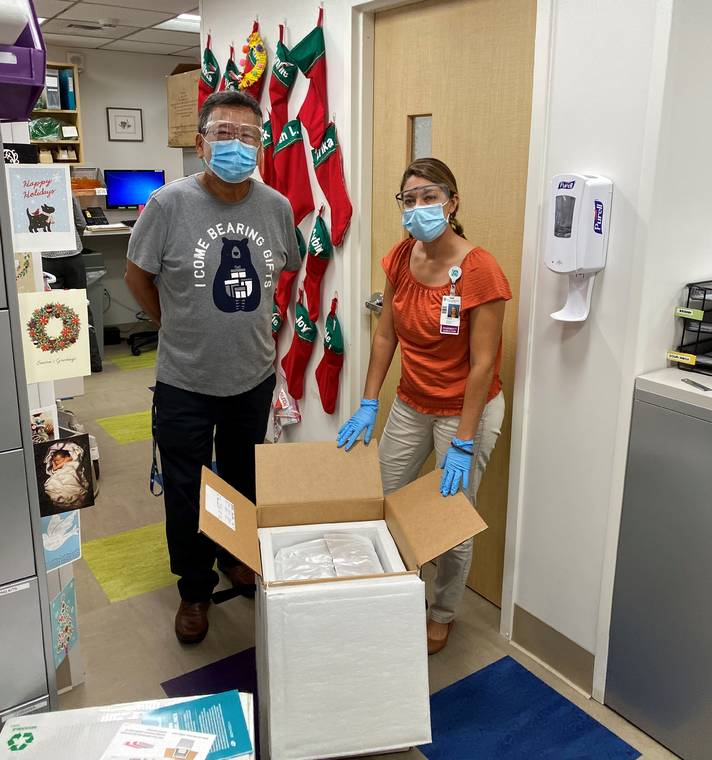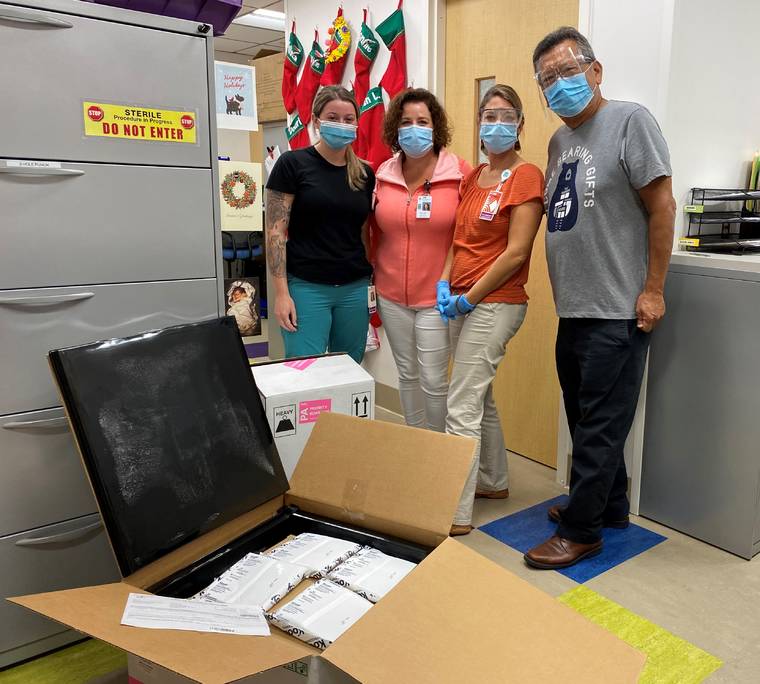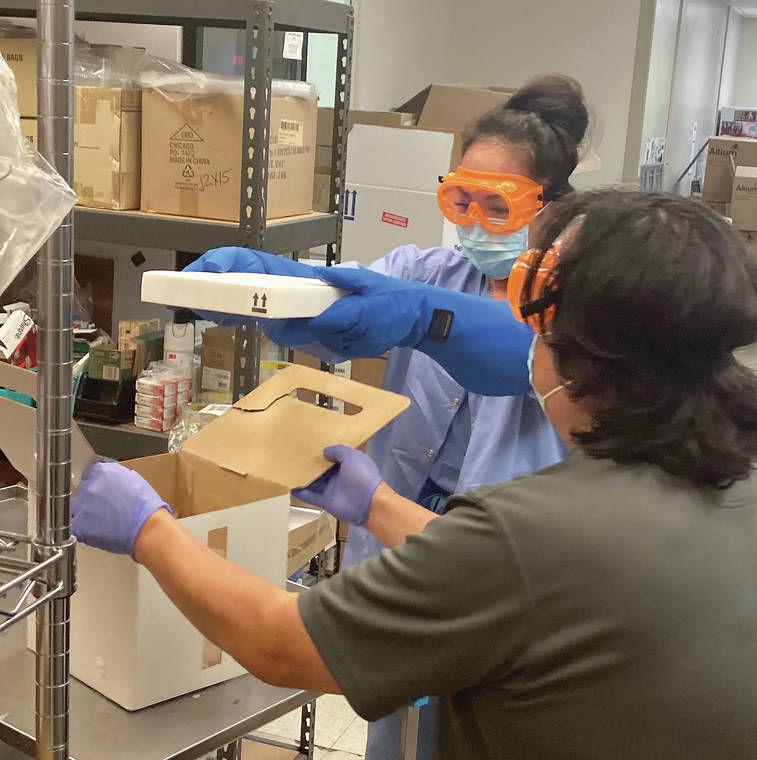Inoculations continue: Residents 70 and older eligible for vaccinations starting Monday
By Laura Ruminski West Hawaii Today lruminski@westhawaiitoday.com | Friday, March 5, 2021, 12:05 a.m.
https://www.westhawaiitoday.com/2021/03/05/hawaii-news/inoculations-continue-residents-70-and-older-eligible-for-vaccinations-starting-monday/
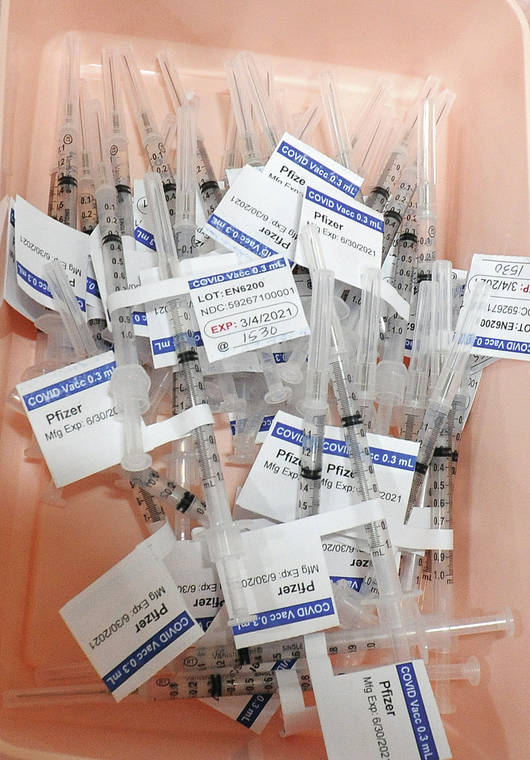
Pfizer vaccines are ready to be administered at the Kona Community Hospital clinic Thursday at Kekuaokalani Gym. (Laura Ruminski/West Hawaii Today)
Kona Community Hospital held its second COVID-19 vaccine mega clinic Thursday, with more than 600 individuals registered to receive a dose at Kekuaokalani Gymnasium in Kailua-Kona.
With the 615 doses administered Thursday, the hospital has now given more than 7,300 doses of the Pfizer vaccine to Phase 1A front-line workers, and Phase 1B kupuna age 75 and older and essential workers, said Judy Donovan, Kona Community Hospital’s marketing and strategic planning director.
Phase 1B essential workers now include employees in transportation (bus, mass transit and dock workers), agriculture, grocery stores, food suppliers, restaurants, gas stations, skilled trades (mechanics, electricians, plumbers), financial institutions, and hospitality/hotels.
The process begins with those set to get the vaccine entering the gym and being checked in. Next, they headed to a waiting area where their paperwork was verified. Once confirmed, nurses and National Guard medics administered the shot and sent the person for a 15- to 30-minute wait under the watchful eye of medical personnel. The whole process takes about 45 minutes to an hour.
The closed point of dispensing (POD) mega clinic is being put on thanks to a partnership between Kona Community Hospital, Alii Health Center, West Hawaii Community Health Center, state Department of Health, Hawaii County and the Hawaii National Guard. Kona Community Hospital is operating the clinic on Thursdays, the Department of Health on Tuesdays and West Hawaii Community Health Center (WHCHC) on Fridays.
Today, the West Hawaii Community Health Center will host the first walk-in clinic at the gym from 9 a.m. to 3 p.m. for kupuna 75 years of age and older. No pre-registration is needed and vaccination is on a first-come, first-served basis for Hawaii County residents with a valid ID only. Part-time “snowbird” residents are eligible but must provide proof of part-time residency.
Patients of WHCHC may register for the in-clinic vaccination by visiting www.westhawaiichc.org.
Though hundreds pulled up their sleeves Thursday, KCH Medical Director Alistair Bairos said he would like to see more people at the clinic.
“We need more people to sign up and come for our vaccine,” he said.
That hopefully will happen because starting Monday, the eligibility age for vaccine administration will drop to 70 and older for all dispensers, including North Hawaii Community Hospital and the state Department of Health.
Vaccinations are by appointment only at the Waimea facility. To request an appointment, email QNHCHVaccine@queens.org and include your name, date of birth, phone number, and employer if you are an essential worker.
To schedule an appointment to receive the Moderna vaccine via the Department of Health call (808) 300-1120. Frontline essential workers will receive vaccinations coordinated through their employer or industry organizations. Organizations with frontline essential workers in Phase 1B should complete not more than one online survey available at www.hawaiicovid19.com/vaccine.
To schedule a vaccination with Kona Community Hospital, call (808) 322-4451. Information can also be obtained via email to KCHCOVIDvaccine@hhsc.org.
